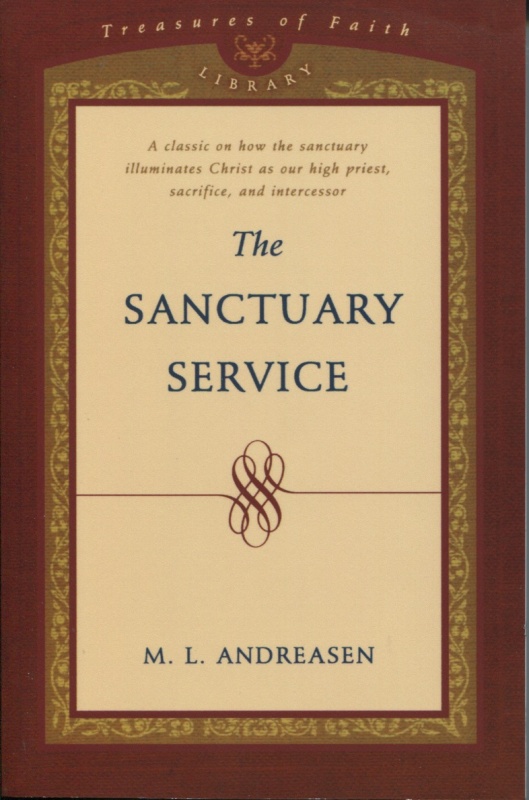

orthodoxymoron wrote:Carol wrote:
A pole shift will not take place, as we are traveling through space in a vortex behind the sun. What is happening is an expansion of the planet which has and will cause earth changes. Case in point: the escalating number of sink holes.Swanny wrote:Phew!! Thank a made up god for that burgundia wrote:Carol wrote:video is not available burgundia. Do you have another link?It says that Poles Shift will take place. It was by Naughty Beaver.
burgundia wrote:Carol wrote:video is not available burgundia. Do you have another link?It says that Poles Shift will take place. It was by Naughty Beaver.'Naughty Beaver'??!!

I've been sort of a Lone-Ranger Bible-Thumper, except that I've taken several conflicting-sides relative to the Bible, its proponents and critics. I have an ongoing love-hate relationship with the Bible and Religion. Anyway, has anyone noticed that this website is highly-eschatological, but not in a Traditional-Biblical sense?! Even if there is No God, we still have to worry about what's going to happen to Earth, Humanity, Aliens, et al. I'm considering the possibility that we are dealing with Middle-Management Gods and Goddesses, at least in this Solar System. Not Almighty God. Not No God. Probably Extremely-Powerful Gods and Goddess, who are Mighty, but NOT Almighty, and are probably a mixture of Good and Evil, Sanity and Insanity, Mercy and Planet-Busting Murder and Mayhem!! I'd love to be wrong. I SO Hope I'm Wrong. If I'm right, we might be more screwed than ANYONE can possibly imagine. 'RA' told me "Humanity is Screwed!!" He said it like he meant it.



-large-picture.jpg)


Carol wrote:
If music gives you goosebumps, your brain might be special!
https://academic.oup.com/scan/article/11/6/884/2223400/Brain-connectivity-reflects-human-aesthetic
Do you ever get that feeling when listening to a great song that makes all the hairs on your arm stand on end?
Personally this writer can remember getting chills when listening to 'Whole Lotta Love' by Led Zeppelin on the number 9 bus from Stourbridge when he was 16.
Experiencing sensations like goose bumps or a lump in the throat when listening to music is quite rare and unique.
Matthew Sachs a former undergraduate at Harvard, last year studied individuals who get chills from music to see how this feeling was triggered.
The research examined 20 students, 10 of which admitted to experiencing the aforementioned feelings in relation to music and 10 that didn't and took brain scans of all of them all.
He discovered that those that had managed to make the emotional and physical attachment to music actually have different brain structures than those that don't.
The research showed that they tended to have a denser volume of fibres that connect their auditory cortex and areas that process emotions, meaning the two can communicate better.
Sachs's findings have been published on Oxford Academic but he is quoted by Neuroscience as saying:
The idea being that more fibers and increased efficiency between two regions means that you have more efficient processing between them.
This means if you do get chills from music you are more likely to have stronger and more intense emotions.
Plus these sensations can also be associated with memories linked to a certain song, which cannot be controlled in a laboratory setting.
Although the study was only small in size Sachs is currently conducting further research which will look at the brains activity when listening to songs that register certain reactions.
By doing so he hopes to learn what neurologically causes these reactions and could actually tap into treatment for psychological disorders.
Depression causes an inability to experience pleasure of everyday things.
You could use music with a therapist to explore feelings.
HT Neuroscience Quartz Oxford Academic
https://www.indy100.com/article/music-goosebumps-some-people-science-research-emotions-psychology-study-harvard-7926781
orthodoxymoron wrote:
"If music gives me an @#$%&*!! does that mean my !@#$!! is special??!!"
Carol wrote:Did you read the article? It means that "white matter connectivity between sensory processing areas in the superior temporal gyrus and emotional and social processing areas in the insula and medial prefrontal cortex explains individual differences in reward sensitivity to music." Pleasurable valuation of music is associated with increased functional connectivity in the brain between auditory cortices and mesolimbic reward circuitry" - people who consistently respond emotionally to aesthetic musical stimuli possess stronger white matter connectivity between auditory association regions in the posterior superior temporal gyrus (pSTG) and emotion and reward processing regions in the aIns and the mPFC." This means that your neural net pathways between different areas of the brain are at a higher functioning level then those who don't experience goose bumps. Individuals with higher functioning brains tend to be more creative and open-minded.
I've passively researched some of this stuff, and it scares the hell out of me. I suspect that this thing is very-ancient and very-nasty (in ways we can't imagine). Consider the following videos. I have no idea if they contain significant truth, or not, but they scare the hell out of me. I continue to suspect that I've conversed with several individuals (at various times throughout my life) who knew the 'Whole-Story' but told me very-little. What REALLY scares me is the possibility that a lot of the Deception, Corruption, Murder, and Mayhem have somehow been absolutely-necessary (in some twisted and abstract sense)!! 'RA' said "The Real-Truth Will Drive 87% of Humanity Completely-Insane!!" (or something to that effect).orthodoxymoron wrote:
I read the fine-print, and I thought it was astounding!! But as I read, I remembered a Roman-Catholic Organist telling me that making-music was a lot like making-love!! Then, my fallen and sinful human-nature brought-out the worst in me, and my monkey-mind created that simplistic and vulgar post, but it brought me a rare bit of joy!! Come to think of it, I knew a Ship-Captain who visited the Conference-Center next to the Mormon Tabernacle, and heard the new Pipe-Organ (shown above)!! He said that an organ-lover would experience an !@#$%!! Someone I know (who is in Europe), sent an image of the organ in the St. Bavo Chruch in Haarlem!! I saw it a couple of hours ago!! I find the music (in the video below) highly-exciting!! blue-roller told me that Bach had sex in the organ-loft!! I wonder how he knew that??!! A college-student told me that he saw a couple making-out while I practiced the pipe-organ!! A complete-stranger told me they had sex with their girlfriend in a Seattle cathedral!! An Episcopal Rector shared a fantasy with me of having sex with his wife at the altar of the church!! That gave me goosebumps!! Enough!! I get carried-away with my internet-modeling!! I'm not like this in real-life!!
Various sources of claimed ancient history are interesting, but how can we ever really know where the BS ends and the TRUTH begins?? With each subsequent layer of supposed-truth and science-fiction, I get more and more disoriented, disillusioned, and despondent. I feel miserable 24/7, and I'm beginning to wonder if I'm part of some sort of a Montauk Project, wherein my subconscious is stimulated by feeling horrible all the time, resulting in my stupid threads on this website?? Or what if I'm an Ancient-Somebody who is being made to look like a Completely Ignorant Fool, in nefarious-ways for nefarious-goals?? Anyway, listen to the following video several times. I heard some confirmation of what I've been speculating about, but how can I know the Absolute-Truth, rather than just playing a Science-Fictional Guessing-Game which makes everyone mad?? I'm presently leaning toward the concept of Gods and Goddesses who are simultaneously Masculine, Feminine, Good, Evil, Nice, Nasty, Genius, and Crazy!! No Wonder the Spirits Are Restless!!
Thank-you mudra. I'm almost to the point where I wish to withdraw from the Galactic-Supermarket, and retreat to the best of what I was brought-up with, not because I think that's the Absolute-Truth, but because Questing and Posting takes too-much time and wheel-spinning to go nowhere-fast. It seems to be worse than a waste of time. Unfortunately, an honest focus upon the best of what I was brought-up with does not endear-me to even those who brought me up. A more productive approach might be to independently size-up each unique situation, and 'go with the flow', giving everyone what they want (while taking what they have). I'm sort of kidding, and sort of serious.mudra wrote:Thanks for watching Oxy. I consider the universe as a huge super market in which everyone of us sentient beings shop according to their various interests. Something triggers our attention and we zoom in and explore it. There are many rooms to explore one leading to the other. It's fascinating stuff really. Stories after stories, a sort of a maze to go through only in reality it doesn't lead anywhere and therefore can be quite alienating. The trick is to remain centered where it all begins, where the observer that we are is. Then there is no way these galleries can overwhelm us and swallow us up. Stay centered my friend.
Love from me
mudra
Verily, Verily, 'RA' Said Unto Me,
"You Can NOT Connect Anything Back to Me!!"
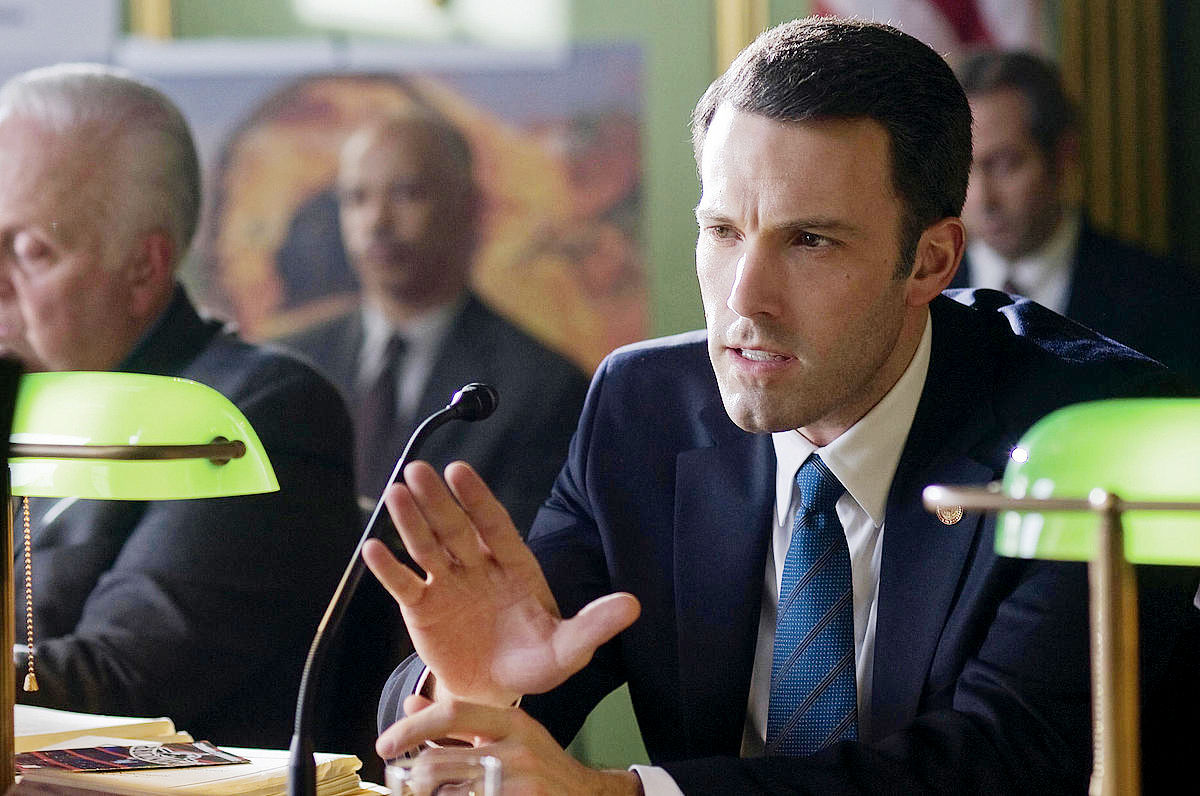





I just finished watching 'American Made' and I thought it was quite-fine (but then I'm a cynical and sarcastic Pain in Uranus)!! It made me think of the movie 'Clear and Present Danger' based upon the novel by Tom Clancy. What if there's a lot of truth to these two movies?? I'm too tired and disillusioned to pursue this. I keep posting and posting and posting, with NOTHING positive resulting from my exercise in futility. I continue to think that if someone studied this thread carefully and prayerfully for one full year, they would experience a HUGE paradigm-shift (for better or worse, I know not). I'm not recommending this, because it might result in mental-illness and social-dysfunction (or worse). It's probably a blessing in disguise that my threads are ignored and ridiculed. No Harm. No Foul.
I've always liked Psychologist and Author, Dr. James Dobson, ever since I watched his first major lecture-video. I was a faithful radio-listener for many years. I met Dr. Dobson, at the Focus on the Family headquarters in Pomona, California (before they relocated to Colorado Springs, Colorado). I watched James Dobson interview Secretary of the Interior, Donald Hodel (before meeting both of them). It was a real-thrill!! I once told a Preacher that Proper Religion, Theology, and Philosophy boiled-down to Psychology and Ethics. He didn't like my idea!! Dr. James Dobson and Dr. Robert Schuller were a couple of my favorites (when I was a young man)!! Psychology was Central to Both!! But honestly, they didn't Preach the Bible!! They, in essence, Created New-Bibles and New-Gods!! I've been a fan of Ellen White, but she too, in essence, Created a New-Bible and a New-God!! The Roman Catholic Church Created a New-Bible and a New-God with their Sophisticated-System of Theology and Liturgy!! I could go on and on and on!! Where does it end?? Does Theology boil-down to "Whatever-Sells"?? Salvation4Sale?? Do we often "Create God in Our Image"?? Is Honesty NOT the Best Policy in Politics and Religion?? Especially if one wishes to become a Rich and Famous Servant of the God of This World??
What if the Unethical and Reprehensible are Somehow Necessary and Unavoidable in a Non-Idealistic Solar-System?? I suspect that we might never know the whole-story. My speculation regarding the True-Nature of Humanity in This Present Solar-System has led me down a somewhat dark and rocky path, and I think I'm lost (in more ways than one). Don't follow me into the ditch. Get Educated. Get a Top-Job. Marry Well. Get Rich. Watch Fox. Go to Church. Get Saved. Join the Masons. Don't Complain. Don't Explain. Look the Other Way. It's Easier That Way. The Morally-Ambiguous Shall Inherit the Earth?? The Conspiracy-Theorists Shall Go to Hell?? The Fast Thinkers, Walkers, and Talkers Shall Go to Heaven?? Time Will Tell (as it always does). On the other hand, what if the Matrix-Record and Galactic-Jurisprudence have been compromised by the Shadow-Government?? What Would Dr. Who Do?? What Would the Valeyard Say?? What Would the Madam-Inquisitor Say?? What Would the Master Say?? That's All I'm Going to Say!! The Less Said, the Better (or so they say). What Would James Dobson Say??

https://en.wikipedia.org/wiki/James_Dobson James Clayton "Jim" Dobson, Jr. (born April 21, 1936) is an American evangelical Christian author, psychologist, and founder in 1977 of Focus on the Family (FOTF), which he led until 2003. In the 1980s he was ranked as one of the most influential spokesmen for conservative social positions in American public life.[1] Although never an ordained minister, he was called "the nation's most influential evangelical leader" by The New York Times while Slate portrayed him as a successor to evangelical leaders Jerry Falwell and Pat Robertson.[2][3][4]
He is no longer affiliated with Focus on the Family. Dobson founded Family Talk as a non-profit organization in 2010 and launched a new radio broadcast, "Family Talk with Dr. James Dobson", that began on May 3, 2010 on over 300 stations nationwide.[5][6] As part of his former role in the organization,[6] he produced Focus on the Family, a daily radio program which according to the organization was broadcast in more than a dozen languages and on over 7,000 stations worldwide, and reportedly heard daily by more than 220 million people in 164 countries.[7][8] Focus on the Family was also carried by about sixty U.S. television stations daily.[7] He founded the Family Research Council in 1981.[9]
James Dobson was born to Myrtle Georgia (née Dillingham) and James C. Dobson, Sr., on April 21, 1936, in Shreveport, Louisiana.[10] From his earliest childhood, religion played a central part in his life. He once told a reporter that he learned to pray before he learned to talk, and says he gave his life to Jesus at the age of three, in response to an altar call by his father.[11] He is the son, grandson, and great-grandson of Church of the Nazarene ministers,[12] although he does not speak for the denomination in any capacity.
His father, James Dobson Sr. (1911–1977), never went to college. He was a traveling evangelist, chiefly in the southwest. The parents took their young son along to watch his father preach. Like most Nazarenes, they forbade dancing and going to movies. Young "Jimmie Lee" (as he was called) concentrated on his studies.[13]
Dobson studied academic psychology, which most evangelical Christians in the 1950s and 1960s did not look upon favorably. He came to believe that he was being called to become a Christian counselor or perhaps a Christian psychologist.[11] He attended Pasadena College (now Point Loma Nazarene University) as an undergraduate and served as captain of the school's tennis team.[14][15] In 1967 Dobson received his doctorate in psychology from the University of Southern California; he served in the faculty of the university's Keck School of Medicine for 14 years.[16][17] For a time, Dobson worked as an assistant to Paul Popenoe at the Institute of Family Relations, a marriage-counseling center, in Los Angeles. [18]
Dobson arguably first became well-known with the publication of Dare to Discipline (1970), which encouraged parents to use corporal punishment in disciplining their children.[19] Dobson's social and political opinions are widely read among many evangelical church congregations in the United States.[20] Dobson publishes monthly bulletins, also called Focus on the Family, which are dispensed as inserts in some Sunday church-service bulletins.[21]
Dobson interviewed serial killer Ted Bundy on-camera the day before Bundy's execution on January 24, 1989. The interview became controversial because Bundy was given an opportunity to attempt to explain his actions (the rape and murder of 30 young women). Bundy claimed in the interview (in a reversal of his previous stance) that violent pornography played a significant role in molding and crystallizing his fantasies. In May 1989, during an interview with John Tanner, a Republican Florida prosecutor, Dobson called for Bundy to be forgiven. The Bundy tapes gave Focus on the Family revenues of over $1 million, $600,000 of which it donated to anti-pornography groups and to anti-abortion groups.[22][23]
Dobson stepped down as President and CEO of Focus on the Family in 2003, and resigned from the position of chairman of the board in February 2009.[24] Dobson explained his departure as a result of "significant philosophical differences" with successor Jim Daly.[25]
In 2010 Dobson founded Family Talk,[26] a non-profit organization that produces his radio program, “Dr. James Dobson’s Family Talk”.
Dobson frequently appears as a guest on the Fox News Channel.[27]
Dobson married the former Shirley Deere on August 26, 1960. The couple has two children, Danae and Ryan. Ryan Dobson (born in California in 1970) graduated from Biola University in La Mirada, California; he is a public speaker with specialization on issues relating to youth and the pro-life movement. He was adopted by the Dobsons and is an ardent supporter of adoption, especially adoption of troubled children.[5]
Dobson attended Point Loma Nazarene University, where he was team captain of the tennis team, most valuable player in 1956 and 1958, and later returned to coach in 1968-1969.[28] Dobson earned a PhD in child development from the University of Southern California in 1967. He was an Associate Clinical Professor of Pediatrics at the University of Southern California School of Medicine for 14 years. He spent 17 years on the staff of the Children's Hospital of Los Angeles in the Division of Child Development and Medical Genetics. Dobson is a licensed psychologist in the State of California.[29]
At the invitation of Presidents and Attorneys General,[8] Dobson has also served on government advisory panels and testified at several government hearings. He has been given the "Layman of the Year" award by the National Association of Evangelicals in 1982, "The Children's Friend" honor by Childhelp USA (an advocate agency against child abuse) in 1987, and the Humanitarian Award by the California Psychological Association in 1988. In 2005, Dobson received an honorary doctorate (his 16th[30]) from Indiana Wesleyan University and was inducted into IWU's Society of World Changers, while speaking at the university's Academic Convocation.[7]
In 2008, Dobson's Focus on the Family program was nominated for induction into the National Radio Hall of Fame.[31] Nominations were made by the 157 members of the Hall of Fame and voting on inductees was handed over to the public using online voting.[32] The nomination drew the ire of gay rights activists, who launched efforts to have the program removed from the nominee list and to vote for other nominees to prevent it from being approved.[33][34] However, the program garnered enough votes and was subsequently inducted into the Radio Hall of Fame.[35]
James Dobson is a strong proponent of traditional marriage, which he defines as "one where husband and wife are lawfully married, are committed to each other for life," and have a homemaker mother and breadwinner father.[36] According to his view, women are not deemed inferior to men because both are created in God's image, but each gender has biblically-mandated roles.[37] He recommends that married women with children under the age of 18 focus on mothering, rather than work outside the home.[38]
In the 2004 book Marriage Under Fire, Dobson suggests that heterosexual marriage rates in Denmark, Norway, and Sweden have been falling, and that this is due to the recognition of same-sex relationships by those countries during the 1990s. He remarks that the "institution of marriage in those countries is rapidly dying" as a result, with most young people cohabiting or choosing to remain single (living alone) and illegitimacy rates rising in some Norwegian counties up to 80%.[39]
Dobson writes that "every civilization in the world" has been built upon marriage.[40] He also believes that homosexuality is neither a choice nor genetic, but is caused by external factors during early childhood.[41] He anecdotally cites as evidence the life of actress Anne Heche,[42][43] who was previously in a relationship with Ellen DeGeneres. Criticizing "the realities of judicial tyranny," Dobson has written that "[t]here is no issue today that is more significant to our culture than the defense of the family. Not even the war on terror eclipses it."[citation needed]
Critics have stated that Dobson's views on homosexuality do not represent the mainstream views of the mental health community, with Dan Gilgoff noting the positions of the American Psychiatric Association and the American Psychological Association on homosexuality.[44][45]
Focus on the Family supports[9] private school vouchers and tax credits for religious schools. According to Focus on the Family website, Dobson believes that parents are ultimately responsible for their children's education, and encourages parents to visit their children's schools to ask questions and to join the PTA so that they may voice their opinions.[46] Dobson opposes sex education curricula that are not abstinence-only. According to People for the American Way, Focus on the Family material has been used to challenge a book or curriculum taught in public schools.[8] Critics, such as People for the American Way, allege that Focus on the Family encourages Christian teachers to establish prayer groups in public schools.[8][47] Dobson supports student-led prayer in public schools,[8] and believes that allowing student-led Christian prayer in schools does not violate the First Amendment to the United States Constitution.[48]
In his book Dare to Discipline, Dobson advocated the spanking of children up to eight years old when they misbehave, but warns that "corporal punishment should not be a frequent occurrence" and that "discipline must not be harsh and destructive to the child's spirit." He warns against "harsh spanking" because "It is not necessary to beat the child into submission; a little bit of pain goes a long way for a young child. However, the spanking should be of sufficient magnitude to cause the child to cry genuinely."[49]
Dobson has called disciplining children to be a necessary but unpleasant part of raising children that should only be carried out by qualified parents:
Anyone who has ever abused a child — or has ever felt himself losing control during a spanking — should not expose the child to that tragedy. Anyone who has a violent temper that at times becomes unmanageable should not use that approach. Anyone who secretly 'enjoys' the administration of corporal punishment should not be the one to implement it.[50]
In his book The Strong-Willed Child, Dobson suggests that if authority is portrayed correctly to a child, the child will understand how to interact with other authority figures:
By learning to yield to the loving authority... of his parents, a child learns to submit to other forms of authority which will confront him later in his life — his teachers, school principal, police, neighbors and employers.[51]
In Dobson's opinion, parents must uphold their authority and do so consistently: "When you are defiantly challenged, win decisively."[49] In The Strong-Willed Child, Dobson draws an analogy between the defiance of a family pet and that of a small child, and concludes that "just as surely as a dog will occasionally challenge the authority of his leaders, so will a little child — only more so."[49] (emphasis in original)
When asked "How long do you think a child should be allowed to cry after being punished? Is there a limit?" Dobson responded:
Yes, I believe there should be a limit. As long as the tears represent a genuine release of emotion, they should be permitted to fall. But crying quickly changes from inner sobbing to an expression of protest... Real crying usually lasts two minutes or less but may continue for five. After that point, the child is merely complaining, and the change can be recognized in the tone and intensity of his voice. I would require him to stop the protest crying, usually by offering him a little more of whatever caused the original tears. In younger children, crying can easily be stopped by getting them interested in something else."[52]
Sociologists John Bartkowski and Christopher Ellison have stated that Dobson's views "diverge sharply from those recommended by contemporary mainstream experts" and are not based on any sort of empirical testing, but rather are nothing more than expressions of his religious doctrines of "biblical literalism and 'authority-mindedness.'"[53]
In the winter of 2004-2005, the We Are Family Foundation sent American elementary schools approximately 60,000 copies of a free DVD using popular cartoon characters (most notably SpongeBob SquarePants) to "promote tolerance and diversity."[54] Dobson contended that "tolerance" and "diversity" are "buzzwords" that the We Are Family Foundation misused as part of a "hidden agenda" to promote homosexuality.[55] Kate Zernik noted Dobson asserting: "tolerance and its first cousin, diversity, 'are almost always buzzwords for homosexual advocacy.'"[56] He stated on the Focus on the Family website that "childhood symbols are apparently being hijacked to promote an agenda that involves teaching homosexual propaganda to children."[57] He offered as evidence the association of many leading LGBT rights organizations, including GLAAD, GLSEN, HRC, and PFLAG, with the We Are Family Foundation as shown by links which he claims once existed on their website.[58]
The We Are Family Foundation countered that Dobson had mistaken their organization with "an unrelated Web site belonging to another group called 'We Are Family,' which supports gay youth."[59] Dobson countered,
I want to be clear: the We Are Family Foundation — the organization that sponsored the video featuring SpongeBob and the other characters was, until this flap occurred, making available a variety of explicitly pro-homosexual materials on its Web site. It has since endeavored to hide that fact, but my concerns are as legitimate today as they were when I first expressed them in January.[58]
In September 2005, Tolerance.org published a follow-up message advertising the DVD's continued availability, including We Are Family Foundation president Nancy Hunt's speculation that many of the DVDs may be "still sitting in boxes, unused, because of Dobson's vitriolic attack."[55]
Dobson believes that God defines marriage as between one man and one woman only and describes this as the central stabilizing institution of society. Dobson believes that any sexual activity outside of such a union — including homosexuality — cannot be approved by God. In Dobson's view, homosexuality results from influences in a child's environment rather than an inborn trait. He states that homosexual behavior, specifically "unwanted same-sex attraction", has been and can be "overcome" through understanding developmental models for homosexuality and choosing to heal the complex developmental issues which led to same-sex attraction.[43][60]
Focus on the Family ministry sponsors[9] the monthly conference Love Won Out, where participants hear "powerful stories of ex-gay men and women."[41] Parents, Families and Friends of Lesbians and Gays (P-FLAG) has protested against the conference in Orlando, questioning both its methodology and supposed success.[61] In regards to the conference, Dobson has stated that "Gay activists come with preconceived notions about who we are and what we believe and about the hate that boils from within, which is simply not true. Regardless of what the media might say, Focus on the Family has no interest in promoting hatred toward homosexuals or anyone else. We also don't wish to deprive them of their basic constitutional rights... The Constitution applies to all of us."[62] Dobson strongly opposes the movement to legitimize same-sex relationships. In his book Bringing Up Boys, Dobson states, "[T]he disorder is not typically 'chosen.' Homosexuals deeply resent being told that they selected this same-sex inclination in pursuit of sexual excitement or some other motive. It is unfair, and I don't blame them for being irritated by that assumption. Who among us would knowingly choose a path that would result in alienation from family, rejection by friends, disdain from the heterosexual world, exposure to sexually transmitted diseases such as AIDS and tuberculosis, and even a shorter lifespan?"[63]
Sociologist Judith Stacey criticized Dobson for claiming that sociological studies show that gay couples do not make good parents. She stated that Dobson's claim "is a direct misrepresentation of my research."[64] In response to Dobson's claim that "there have been more than ten thousand studies that have showed that children do best when they are raised with a mother and a father who are committed to each other," Stacey replied that "[a]ll of those studies that Dobson is referring to are studies that did not include gay or lesbian parents as part of the research base."[65]
Dobson objected to a bill expanding the prohibition of sexual orientation-based discrimination in the areas of "public accommodation, housing practices, family planning services and twenty other areas." He said that, were such a bill passed, public businesses could no longer separate locker rooms and bathrooms by gender, which he claimed would lead to a situation where, "every woman and little girl will have to fear that a predator, bisexual, cross-dresser or even a homosexual or heterosexual male might walk in and relieve himself in their presence."[66][67]
Although Dobson initially remained somewhat distant from Washington politics, in 1981 he founded the Family Research Council as a political arm through which "social conservative causes" could achieve greater political influence.[68] In 1996, he cast a vote for U.S. Taxpayers' Party Presidential candidate Howard Phillips.[69]
In late 2004, Dobson led a campaign to block the appointment of Arlen Specter to head of the Senate Judiciary Committee because of Specter's pro-choice stance on abortion.[70] Responding to a question by Fox News personality Alan Colmes on whether he wanted the Republican Party to be known as a "big-tent party," he replied, "I don't want to be in the big tent... I think the party ought to stand for something."[27] In 2006, Family Research Council spent more than a half million dollars to promote a constitutional amendment to ban same-sex marriage in its home state of Colorado.[71]
A May 2005 article by Hedges in Harper's Magazine described Dobson as "perhaps the most powerful figure in the Dominionist movement" and "a crucial player in getting out the Christian vote for George W. Bush."[72] Discernment Ministries, a site that describes dominionism as a heresy, characterized Dobson as belonging to the "Patriotic American" brand of dominionism, calling him "One of its most powerful leaders."[73]
In November 2004, Dobson was described by the online magazine Slate as "America's most influential evangelical leader."[4] The article explained "Forget Jerry Falwell and Pat Robertson, who in their dotage have marginalized themselves with gaffes... Dobson is now America's most influential evangelical leader, with a following reportedly greater than that of either Falwell or Robertson at his peak... Dobson may have delivered Bush his victories in Ohio and Florida."[4] Further, "He's already leveraging his new power. When a thank-you call came from the White House, Dobson issued the staffer a blunt warning that Bush 'needs to be more aggressive' about pressing the religious right's pro-life, anti-gay rights agenda, or it would 'pay a price in four years.'... Dobson has sometimes complained that the Republican Party may take the votes of social conservatives for granted, and has suggested that evangelicals may withhold support from the GOP if the party does not more strongly support conservative family issues: "Does the Republican Party want our votes, no string attached — to court us every two years, and then to say, 'Don't call me, I'll call you' — and not to care about the moral law of the universe? ... Is that what they want? Is that the way the system works? Is this the way it's going to be? If it is, I'm gone, and if I go, I will do everything I can to take as many people with me as possible."[8]
However, in 2006, Dobson said that, while "there is disillusionment out there with Republicans" and "that worries me greatly," he nonetheless suggested voters turn out and vote Republican in 2006. "My first inclination was to sit this one out," but according to The New York Times, Dobson then added that "he had changed his mind when he looked at who would become the leaders of Congressional committees if the Democrats took over."[68]
Dobson garnered national media attention once again in February 2008 after releasing a statement in the wake of Senator John McCain's expected success in the so-called "Super Tuesday" Republican primary elections. In his statement, Dobson said: "I cannot, and will not, vote for Senator John McCain, as a matter of conscience," and indicated that he would refrain from voting altogether if McCain were to become the Republican candidate, echoing other conservative commentators' concerns about the Senator's conservatism.[74] He endorsed Mike Huckabee for president. After McCain selected a pro-life candidate, Sarah Palin, as his running mate, Dobson said that he was more enthusiastic in his support for the Republican ticket.[75] When Palin's 17-year-old daughter's pregnancy was revealed, Dobson issued a press release commending Palin's stance, saying,
We have always encouraged the parents to love and support their children and always advised the girls to see their pregnancies through, even though there will of course be challenges along the way. That is what the Palins are doing, and they should be commended once again for not just talking about their pro-life and pro-family values, but living them out even in the midst of trying circumstances."[76]
On June 24, 2008, Dobson publicly criticized statements made by U.S. Presidential candidate Barack Obama in Obama's 2006 "Call to Renewal"[77] address. Dobson stated that Obama was "distorting the traditional understanding of the Bible to fit his own world view."[78] On October 23, 2008, Dobson published a "Letter from 2012 in Obama's America" that proposed that an Obama presidency could lead to: mandated homosexual teachings across all schools; the banning of firearms in entire states; the end of the Boy Scouts, home schooling, Christian school groups, Christian adoption agencies, and talk radio; pornography on prime-time and daytime television; mandatory bonuses for gay soldiers; terrorist attacks across America; the nuclear bombing of Tel Aviv; the conquering of most of Eastern Europe by Russia; the end of health care for Americans over 80; out-of-control gasoline prices; and complete economic disaster in the United States, among other catastrophes.[79] In the days after the 2008 presidential election, Dobson stated on his radio program that he was mourning the Obama election, claiming that Obama supported infanticide, would be responsible for the deaths of millions of unborn children, and was "going to appoint the most liberal justices to the Supreme Court, perhaps, that we've ever had."[80]
Dobson is an intelligent design supporter and has spoken at conferences supporting the subject, and frequently criticizes evolution.[81] In 2007, Dobson was one of 25 evangelicals who called for the ouster of Rev. Richard Cizik from his position at the National Association of Evangelicals because Cizik had taken a stance urging evangelicals to take global warming seriously.[82]
On June 13, 2007, the National Right to Life Committee ousted Colorado Right to Life after the latter ran a full-page ad criticizing Dobson.[83][84]
On May 30, 2010, Dobson delivered the pre-race invocation at the NASCAR Coca-Cola 600 automobile race, raising criticism about his association with a sport associated with sponsors and activities which would not meet his definition of family-friendly.[85][86]
At a National Day of Prayer event in the U.S. Capitol, Dobson called Barack Obama "the abortion president." He said, "President Obama, before he was elected, made it very clear that he wanted to be the abortion president. He didn’t make any bones about it. This is something that he really was going to promote and support, and he has done that, and in a sense he is the abortion president." Among others, Rep. Janice Hahn complained because Dobson used the National Day of Prayer for partisan purposes. She said, "Dobson just blew a hole into this idea of being a nonpartisan National Day of Prayer. It was very disturbing to me...and really a shame. James Dobson hijacked the National Day of Prayer — this nonpartisan, nonpolitical National Day of Prayer — to promote his own distorted political agenda."[87]
Dobson and Charles Colson were two participants in a 2000 conference at the Vatican on the global economy's impact on families. During the conference, the two Protestants met with Pope John Paul II. Dobson later told Catholic News Service that though he has theological differences with Roman Catholicism, "when it comes to the family, there is far more agreement than disagreement, and with regard to moral issues from abortion to premarital sex, safe-sex ideology and homosexuality, I find more in common with Catholics than with some of my evangelical brothers and sisters."[88]
In November 2009, Dobson signed an ecumenical statement known as the Manhattan Declaration calling on evangelicals, Catholics and Eastern Orthodox Christians not to comply with rules and laws permitting abortion, same-sex marriage and other matters that go against their religious consciences.[89]
Books as sole author
Dobson, James C. (February 1977). Dare to Discipline. Bantam Books. ISBN 0-553-22841-2.
Dobson, James (1980-07-23). Preparing for Adolescence. Vision House. ISBN 0-88449-112-9.
Dobson, James (1982). Dr. Dobson Answers Your Questions About Raising Children. Tyndale House. ISBN 0-8423-0620-X.
Dobson, James C. (1984-11-01). Emotions Can You Trust Them. Bantam Books. ISBN 0-553-25751-X.
Dobson, James C. (November 1986). Dr. Dobson Answers Your Questions about Feelings and Self-Esteem. Tyndale House. ISBN 0-8423-0621-8.
Dobson, James (1987-01-01). Parenting Isn't for Cowards Dealing Confidently With the Frustrations of Child-Rearing. Word. ISBN 0-8499-0630-X.
Dobson, James C. (2002). Bringing Up Boys Practical Advice and Encouragement for Those Shaping the Next Generation of Men. Tyndale House. ISBN 0-8423-5266-X.
Dobson, James C. (2010). Bringing Up Girls: Practical Advice and Encouragement for Those Shaping the Next Generation of Women. Tyndale House. ISBN 978-1-77036-544-5.
Dobson, James C. (2000-09-29). The Complete Marriage and Family Home Reference Guide. Tyndale House. ISBN 0-8423-5267-8.
Dobson, James (2004-10-31). Dr. James Dobson on Parenting. World Publishing. ISBN 0-88486-339-5.
Dobson, James (2000-10-24). Life on the Edge. Thomas Nelson. ISBN 0-8499-0927-9.
Dobson, James (2004-03-09). Love for a Lifetime Building a Marriage That Will Go the Distance. Multnomah Books. ISBN 1-59052-087-4.
Dobson, James C. (2007-04-16). Love Must Be Tough New Hope for Families in Crisis. Tyndale House. ISBN 1-4143-1745-X.
Dobson, James C. (1996). The New Dare to Discipline. Tyndale House. ISBN 0-8423-0506-8.
Dobson, James (2001-02-01). The New Hide or Seek Building Confidence in Your Child. Revell. ISBN 0-8007-5680-0.
Dobson, James C. (2007). The New Strong-Willed Child. Tyndale House. ISBN 1-4143-1363-2.
Dobson, James C. (2003-10-01). Parents' Answer Book. Living Books. ISBN 0-8423-8716-1.
Dobson, James C. (January 2004). Romantic Love How to Be Head Over Heels and Still Land on Your Feet. Regal Books. ISBN 0-8307-3238-1.
Dobson, James C. (1997-07-09). Solid Answers. Tyndale House. ISBN 0-8423-0623-4.
Dobson, James C. (2007-05-29). Stories of Heart and Home. Tyndale House. ISBN 1-4143-1747-6.
Dobson, James (2000-06-06). Straight Talk to Men. Thomas Nelson. ISBN 0-8499-4210-1.
Dobson, James (1995-09-26). Straight Talk What Men Should Know, What Women Need to Understand. Thomas Nelson. ISBN 0-8499-3858-9.
Dobson, James C. (September 1992). The Strong-Willed Child. Living Books. ISBN 0-8423-2335-X.
Dobson, James C. (1986-04-01). Temper Your Child's Tantrums. Tyndale House. ISBN 0-8423-6994-5.
Dobson, James C. (2001-11-20). When God Doesn't Make Sense. Living Books. ISBN 0-8423-7062-5.
Books with others
primary author Paul C. Reisser ; managing editor Melissa R. Cox ; editor Vinita Hampton Wright. (1999-10-01). The Focus on the Family Complete Book of Baby and Child Care. Tyndale House. ISBN 0-8423-3512-9. (Foreword)
Sutherland, Mark I.; William J. Federer; Roy Moore; James Dobson; Alan Keyes; Ed Meese; Phyllis Schlafly; Matthew D. Staver; Alan Sears (2005-07-04). Judicial Tyranny The New Kings of America. Amerisearch. ISBN 0-9753455-6-7.
Dobson, James C.; Shirley Dobson (2007-04-16). Marriage Under Fire: Why We Must Win This Battle. Tyndale House. ISBN 1-4143-1756-5.
Dobson, James C.; Shirley Dobson (2007-04-16). Night Light A Devotional for Couples. Tyndale House. ISBN 1-4143-1749-2.
Dobson, James C.; Shirley Dobson (2007-04-20). Night Light for Parents A Devotional. Tyndale House. ISBN 1-4143-1751-4.
Bruner, Kurt; James C Dobson (2013). Fatherless. Faith Words. ISBN 978-1-4555-1311-6.
Notable articles and reports[edit]
Dobson served on the committee that wrote the Meese Report on pornography.[90]
Dobson, James C. (2006-12-12). "Two Mommies Is One Too Many". Time. Retrieved 2008-06-21.
References
1.Jump up ^ Detwiler, Fritz (1999). Standing on the Premises of God The Christian Right's Fight to Redefine America's Public Schools. NYU Press. p. 68. ISBN 978-0-8147-1914-5.
2.Jump up ^ Kirkpatrick, David (2005-01-01). "Evangelical Leader Threatens to Use His Political Muscle Against Some Democrats". The New York Times. Retrieved 2016-08-18.
3.Jump up ^ Olsen, Ted (2005-02-21). "Who's Driving This Thing?". Christianity Today. Retrieved 2008-09-05.
4.^ Jump up to: a b c Crowley, Michael (2004-11-12). "James Dobson: The Religious Right's New Kingmaker.". Slate.com. Archived from the original on 2004-11-17. Retrieved 2016-08-18.
5.^ Jump up to: a b ""Family Talk" Is Largest Launch In Christian Radio History - Media Center - Ambassador Advertising Agency - We Connect Ministry and Media". Ambassadoradvertising.com. 2010-05-05. Retrieved 2010-10-16.
6.^ Jump up to: a b "James Dobson delivers final broadcast for Focus on Family". Usatoday.Com. 2010-02-26. Retrieved 2010-10-16.
7.^ Jump up to: a b c "Press Biographies > Dr. James Dobson". Focus on the Family. Archived from the original on 2007-03-29. Retrieved 2007-05-09.
8.^ Jump up to: a b c d e f "Focus on the Family". People For the American Way. 2006. Retrieved 2006-10-10.
9.^ Jump up to: a b c Morning Edition (2010-02-26). "James Dobson Signs Off At Focus On The Family". NPR. Retrieved 2010-10-16.
10.Jump up ^ http://www.sanbenitohistory.com/projects/Famous_San_Benitians_8th/Dobson.html
11.^ Jump up to: a b Apostolidis, Paul (May 2000). Stations of the Cross Adorno and Christian Right Radio. Duke University Press. p. 22. ISBN 0-8223-2541-1.
12.Jump up ^ Gerson, Michael (1998-05-04). "A Righteous Indignation". US News & World Report. reprinted at SkepticTank.org
13.Jump up ^ Stepp, Laura (1990-08-08). "The Empire Built on Family and Faith: Psychologist James C. Dobson, Bringing His Evangelical Focus to Politics". Washington Post. pp. C1–3.
14.Jump up ^ "Love to Serve News". TennisMinistry.org. 2000. Retrieved December 6, 2010.
15.Jump up ^ "Jim Dobson". Institute for the Study of American Evangelicals, Wheaton College. Retrieved December 6, 2010.
16.Jump up ^ "Dr. James Dobson". Focus on the Family. Retrieved December 6, 2010.
17.Jump up ^ "Faculty in the broader community". University of Southern California.
18.Jump up ^ David Popenoe, War Over the Family, Transaction Publishers, 2005. ISBN 978-0-7658-0259-0. Chapter 14: Remembering My Father: An Intellectual Portrait of "The Man Who Saved Marriages".
19.Jump up ^ Balmer, Randall (August 2007). "The Wizard of Colorado Springs". Sojourners Magazine. Retrieved 2008-06-26. "his breakthrough book, Dare to Discipline, [...] challenged the permissive child-rearing techniques of Benjamin Spock. The book, published in 1970, encouraged parents to spank their children with belts or switches and to leave such items on the child's dresser to remind her of the consequences of challenging authority"
20.Jump up ^ Gibbon, Jeani Hunt (Sep–October 2005). "Listening to Dr. Dobson". 20 (5). Tikkun: 11. Check date values in: |date= (help) "Dobson is one of the single most important religious intellectuals and political leaders in America today, and many people take his words very seriously. When Dobson makes such a statement, it is the Evangelical equivalent of a Vatican Decree that is meant to communicate a policy position not only to church goers, but to social conservatives as a whole-specifically, the Republican Party."
21.Jump up ^ Roberts, Steven V. (1995-04-25). "The Heavy Hitter". 118 (16). US News & World Report: 34. "Like a religious version of Walt Disney, Dobson started with a small idea and built it into a multimedia empire: 10 radio shows, 11 magazines (including specialty publications for doctors, teachers and single parents), bestselling books, film strips and videos of all kinds. Then there are the basketball camps and the curriculum guides, the church bulletin fillers and suggested sermon topics, faxed weekly to thousands of pastors."
22.Jump up ^ Aynesworth, Hugh (January 24, 1999). "Bundy lore lives decade after killer was put to death". The Washington Times.
23.Jump up ^ Blumenthal, Max (2009). Republican Gomorrah Inside the Movement that Shattered the Party. Nation Books. p. 77. ISBN 1-56858-398-2.
24.Jump up ^ Gorski, Eric (2009-02-27). "James Dobson resigns as Focus on the Family chair". Associated Press. Retrieved 2009-02-27.
25.Jump up ^ "The Rest of the Story". 2013-10-07. Archived from the original on August 17, 2013. Retrieved 2013-10-07.
26.Jump up ^ "Dr. Dobson's Ministry & History". Retrieved 2013-12-16. "Dr. Dobson felt God directing him to start a new ministry, which he did in March 2010, to continue the important work of strengthening families, speaking into the culture, and spreading the gospel of Jesus Christ. He called the new organization Family Talk."
27.^ Jump up to: a b "What Will a New Bush Term Mean for the American Family?". Fox News. 2004-11-15. Retrieved 2008-06-20.
28.Jump up ^ "Year/Coach/Record/MVP". Retrieved 2008-06-20.
29.Jump up ^ "Psychologist license". State of California. Retrieved 2011-05-24.
30.Jump up ^ "Triangle; President's Report 2005" (PDF). Archived from the original (PDF) on April 14, 2006. Retrieved 2008-10-11.
31.Jump up ^ Williams, Devon (2008-05-01). "Dr. Dobson's Broadcast Nominated to Radio Hall of Fame". Citizenlink.org. Retrieved 2008-07-25.
32.Jump up ^ Barna, Mark (2008-07-21). "Dobson garners hall of fame honor". The Gazette. Retrieved 2008-07-25.
33.Jump up ^ "Dr. Dobson Blasted by Gay Activist". Citizenlink.org. 2008-07-11. Retrieved 2008-07-25.
34.Jump up ^ Besen, Wayne (2008-07-09). "TWO Launches Drive to Keep James Dobson Out of the Radio Hall of Fame". PR Newswire. Retrieved 2008-07-25.
35.Jump up ^ "Focus On The Family". Radio Hall of Fame. Retrieved 2011-05-24.
36.Jump up ^ James C. Dobson and Gary L. Bauer, Children at Risk (1994) p. 119, 122
37.Jump up ^ Dobson, James (2001). "Why Boys Are So Different". FocusonYourChild.com. Focus on the Family. Retrieved 2007-09-07.
38.Jump up ^ Dobson, James. "Is it important for mothers to stay home during the teen years?". Focus on the Family. Retrieved 2008-06-20.
39.Jump up ^ Why We Must Win This Battle
40.Jump up ^ Dobson, James C. Marriage under fire: why we must win this war. Sisters, Or. : Multnomah Publishers, 2004. quoted in McManus, Mike and Harriet McManus. Living together: myths, risks, and answers. New York: Simon and Schuster, 2008.
41.^ Jump up to: a b King, Larry (2006-11-22). "Interview With Dr. James Dobson". CNN. Retrieved 2010-11-13.
42.Jump up ^ Johnson, Alex (2005-06-23). "'Healed' by God: Evangelical group sponsors conference on nature of gays". MSNBC. Retrieved 2008-06-21.
43.^ Jump up to: a b Schmader, David (2005-06-30). "Jesus Hates You; Christians Rationalize Bigotry at "Love Won Out"". 14 (42). The Stranger. p. 16.
44.Jump up ^ Gilgoff, Dan (2008). The Jesus Machine How James Dobson, Focus on the Family, and Evangelical America Are Winning the Culture War. Macmillan Publishers. p. 56. ISBN 9780312378448.
45.Jump up ^ Dudley, Jonathan (2011). Broken Words The Misfortunes of Science and Scripture in Evangelical Politics. Random House. p. 69. ISBN 9780385525268.
46.Jump up ^ "What can parents do to improve public schools?". Focus on the Family. Retrieved 2008-06-21.
47.Jump up ^ Zirin, Dave (2006-07-28). "You Can Keep the Faith". The Nation. Retrieved 2008-06-21.
48.Jump up ^ Stammer, Larry B.; Richard Lee Colvin (1995-08-31). "Foes Target Amendment on Prayer in Schools; Beliefs: Citing Federal Guidelines, Activists and Some Religious Leaders say a Change in Constitution is Unneeded". Los Angeles Times. p. 3. "We do not support teacher-led, state-mediated school prayer, but we do believe that students have the same religious rights as other people," said Alan Crippen of "Focus on the Family," a major evangelical Christian broadcast and publications ministry founded by psychologist James Dobson.
49.^ Jump up to: a b c *Dobson, James C. (February 1977). Dare to Discipline. Bantam. p. 7. ISBN 0-553-22841-2.
50.Jump up ^ Dobson, James (2004-11-21). "Good-Natured Child Needs His Share of Parents' Attention". Focus on the Family. Retrieved 2008-06-21.
51.Jump up ^ Dobson, James C. (September 1992). The Strong-Willed Child. Living Books. p. 235. ISBN 0-8423-2335-X.
52.Jump up ^ "Discipline problems". Retrieved 2008-05-04.
53.Jump up ^ Bartkowski, John P.; Ellison, Christopher G. (1995), "Divergent Models of Childrearing in Popular Manuals: Conservative Protestants vs. the Mainstream Experts", Sociology of Religion, 56 (1): 21–34, doi:10.2307/3712036
54.Jump up ^ "US right attacks SpongeBob video". BBC News. 2005-01-20. Retrieved 2008-06-20.
55.^ Jump up to: a b "'We Are Family' DVD Still Available". Southern Poverty Law Center. 2005-09-06. Retrieved 2008-06-20.
56.Jump up ^ Zernike, Kate (2005-01-30). "Buzzwords; Hello, Synergy, Begone, Crisis". New York Times. Retrieved 2008-06-20.
57.Jump up ^ "Religious Right Attacks Tolerance Pledge". Southern Poverty Law Center. March 2005. Archived from the original on July 13, 2007. Retrieved 2008-06-20.
58.^ Jump up to: a b Chang, Pauline J. (2005-01-28). "Dobson Clarifies Pro-Gay SpongeBob Video Controversy". The Christian Post. Retrieved 2008-06-20.
59.Jump up ^ Kirkpatrick, David D. (2005-01-20). "Conservatives Pick Soft Target: A Cartoon Sponge". The New York Times. Retrieved 2008-06-20.
60.Jump up ^ "Love Won Out FAQ".
61.Jump up ^ "Orlando Sentinel: Gay activists to protest Orlando event, notion that homosexuality is 'curable'". Truthwinsout.org. 2008-06-06. Retrieved 2008-09-05.
62.Jump up ^ Kwon, Lillian (March 19, 2008). "Gays Still Looking for Love from Christians".
63.Jump up ^ Bringing Up Boys, Focus on the Family 2003, p. 115-116
64.Jump up ^ Paulson, Steven K. (2006-07-17). "Gay rights group: Dobson manipulated research". Boston Globe.[dead link]
65.Jump up ^ Dr. Judith Stacey on James Dobson's Distortions on YouTube
66.Jump up ^ Ingold, John (2008-05-30). "Anti-bias measure inked: Governor signs bill covering sexual orientation, religious beliefs". The Denver Post. Retrieved 2008-06-20.
67.Jump up ^ "Controversial ad offends transgendered community : News". ColoradoConnection.com. 2008-05-22. Retrieved 2010-10-16.
68.^ Jump up to: a b Kirkpatrick, David D. (2004-05-13). "The 2004 Campaign: Evangelical Christians—Warily, a Religious Leader Lifts His Voice in Politics". The New York Times. p. A22.
69.Jump up ^ Phillips, Howard (2004-11-08) Constitutionally Correct Peroutka, The American Conservative
70.Jump up ^ "Conservative leader targets Specter". CNN. 2004-11-09. Archived from the original on April 17, 2008. Retrieved 2008-06-20.
71.Jump up ^ Asay, Paul (2006-08-23). "Focus backing state amendment". The Gazette. Archived from the original on June 10, 2008. Retrieved 2008-06-20.
72.Jump up ^ Hedges, Chris (May 2005). "Feeling the hate with the National Religious Broadcasters". Harper's Magazine.(subscription required, reprinted here.)
73.Jump up ^ Leslie, Sarah. "Dominionism and the Rise of Christian Imperialism". Discernment Ministries. Retrieved 2008-06-20.
74.Jump up ^ Stoddard, Ed (2008-02-05). "Super Tuesday: Dobson delivers blow to McCain candidacy". Reuters. Retrieved 2008-06-20.
75.Jump up ^ MacAskill, Ewen; Ed Pilkington (2008-09-01). "US politics: McCain defends running mate's experience". London: The Guardian. Retrieved 2008-09-01.
76.Jump up ^ Tapper, Jake (2008-09-01). "Dobson on Bristol Palin's Pregnancy". ABC News. Retrieved 2008-09-01.
77.Jump up ^ Obama, Barack (2006-06-28). "'Call to Renewal' Keynote Address". Retrieved 2008-06-25.
78.Jump up ^ Mooney, Alexander (2008-06-24). "Dobson accuses Obama of 'distorting' Bible". CNN. Retrieved 2012-01-01.
79.Jump up ^ Dobson, James (2008-10-23). "Letter from 2012 in Obama's America" (PDF). Focus on the Family Action. Retrieved 2008-11-26.
80.Jump up ^ Ertelt, Steven (2008-11-07). "James Dobson Mourns Obama Victory, Forecasts Significant Abortion Promotion". Lifenews.com. Retrieved 2008-11-26.
81.Jump up ^ Barbara Forrest and Paul R. Gross. Creationism's Trojan Horse: The Wedge of Intelligent Design. 2004, page 270
82.Jump up ^ Cooperman, Alan (2007-03-03). "Evangelical Angers Peers With Call for Action on Global Warming". The Washington Post. Retrieved 2008-06-19.
83.Jump up ^ National group boots Colorado Right to Life
84.Jump up ^ Colorado RTL open letter to Dr. James Dobson
85.Jump up ^ "No Coca-Cola 600 for me", Mike Chambers, Denver Post, May 26, 2010
86.Jump up ^ "Controversial Evangelical Leader Conducts Prayer At Coca-Cola 600", Dan Fogarty, sportsgrid.com, May 30, 2010
87.Jump up ^ Ashtari, Shadee (May 1, 2014) [ "Janice Hahn Walks Out Of Event After James Dobson Calls Obama The 'Abortion President'."] Huffpost. (Retrieved 5-1-2014.)
88.Jump up ^ Weblog: James Dobson Charles Colson Head to Vatican Meet with Pope
89.Jump up ^ Manhattan Declaration: A Call of Christian Conscience
90.Jump up ^ "Commissioner Biographies". July 1986. Retrieved 2008-06-20.
Further reading
Apostolidis, Paul. Stations of the Cross: Adorno and Christian Right Radio (2000) excerpt and text search, analysis of Dobson's radio programs
Alexander-Moegerle, Gil (1997). James Dobson's war on America. Amherst, NY: Prometheus Books. ISBN 1-57392-122-X.
Gilgoff, Dan (2008-04-29). The Jesus Machine How James Dobson, Focus on the Family, and Evangelical America are Winning the Culture War. St. Martin's Press. ISBN 0-312-37844-0.
Løvdal, Hilde, “Family Matters: James Dobson and the Focus on the Family’s Message to American Evangelicals, 1970–2010” (PhD dissertation, University of Oslo, Norway, 2012).















"Now I Go Incognito"

Last edited by orthodoxymoron on Sun Sep 30, 2018 4:48 pm; edited 6 times in total












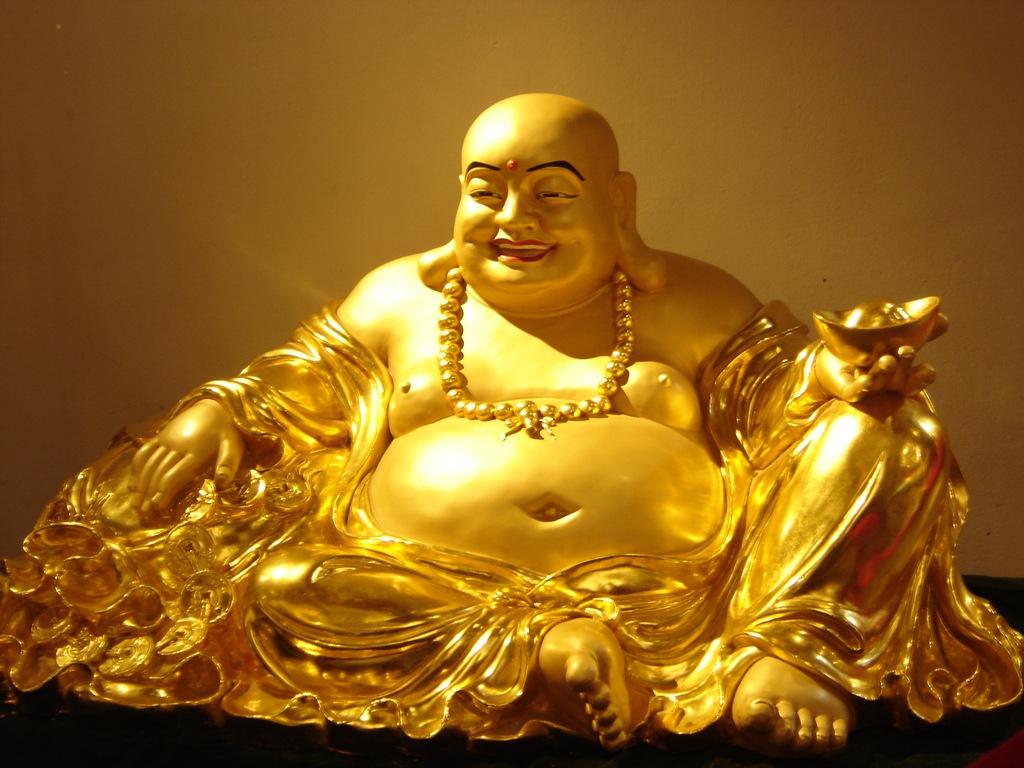
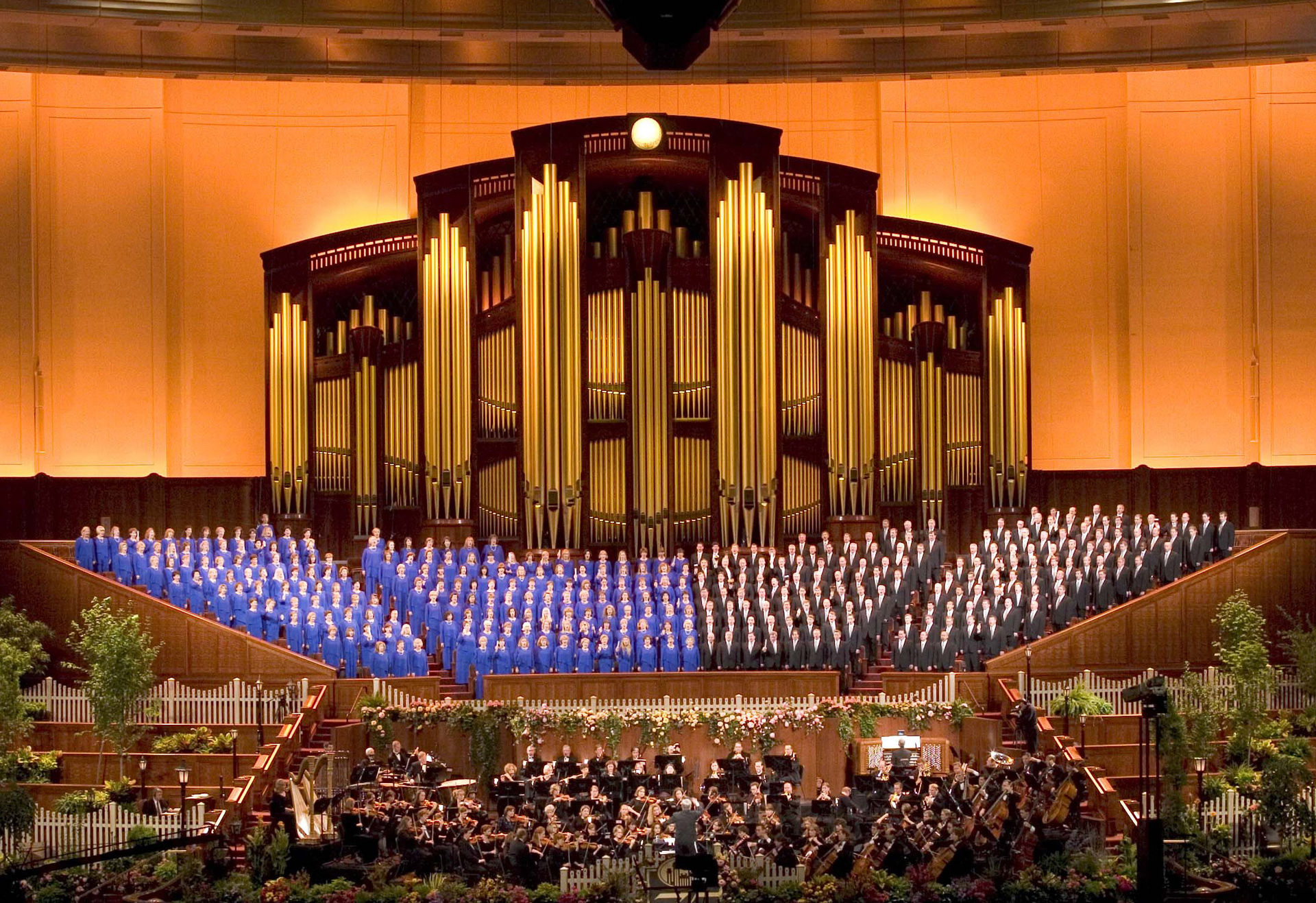



























































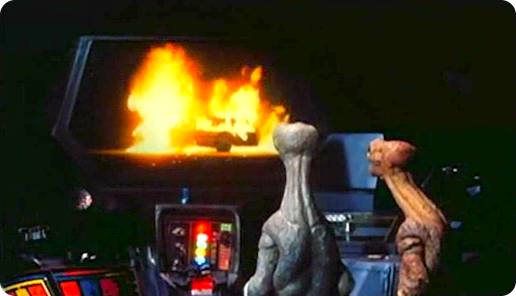











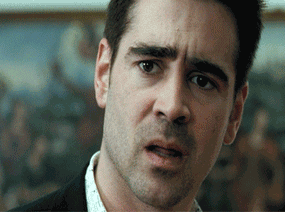














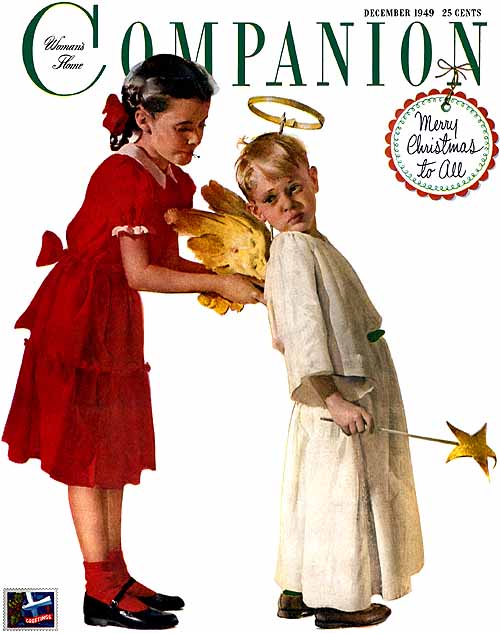
.jpg)
















